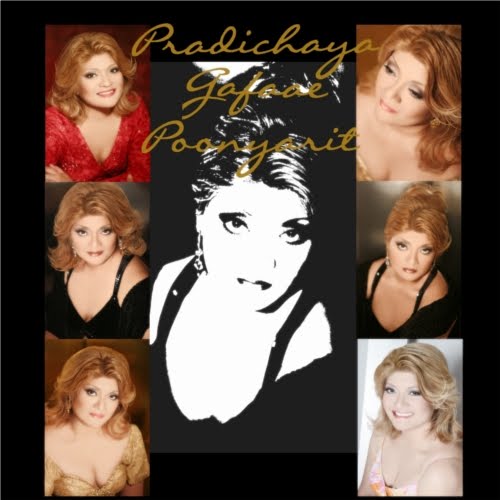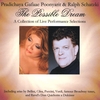Sense and Sensibility is one of the many best books I've read in my life. If you've never had the opportunity to read Jane Austen I cannot recommend her too highly.
The title, though- and what it represents- is what I want to discuss, for it represents one of the many essential dichotomies that we struggle with as human beings. How much in our lives do we rely upon our rationality, and how much our emotion and instinct?
A safe answer, as far as it goes, is that we must rely on both, balancing these opposites in everything we do. To be sure, there are those who do so effortlessly, but many who say this are really just avoiding having to deal with considering it in their own lives. I certainly don't believe that it is a valid justification for anyone's words or deeds after the fact: it must be a conscious decision beforehand.
I guess what I'm trying to get at is that people should be more mindful of the decisions facing them every day so that they can do the best for themselves and those around them. It's far too easy for us simply to coast along and do what we think is expected of us, and if asked afterward proffer a lame excuse. It's simply a question of responsibility.
This is certainly true as we learn a skill such as singing, in which we are constantly trying to better ourselves. As we ask “why not?” or “why?” we do certain things, we engage that rational part of ourselves in order to look for answers.
Yet we (should) also base those questions upon far more subjective grounds: “Why does it hurt when I sing high?” or “Why doesn't it feel right when I sing that passage?”
Good students always ask “why?” for a reason specific to them, not just because they don't understand in an academic sense. If I know how to do something it's because I've managed to incorporate some knowledge to fit me and my unique needs and abilities.
But far too often, students take a teacher's word as gospel and apply it in a “one size fits all” manner. They don't stop to think how they can take some knowledge and make it their own; rather, they attempt to do something they believe is what the teacher expects. They subjugate their own feelings in order to follow a (misunderstood) directive, and then wonder why it doesn't work out.
Now, of course we must first have a structure in place before we can be aware of it, and in most things we do begin by learning “the basics;” and while it is true there is little subjective analysis at this point in the learning process, it is simply because the basics are what we all share as humans. They are true for everyone.
I have always said that there are four stages of learning a skill: unconscious incompetence (you're bad and don't know why), conscious incompetence (as you learn more you know why you're bad), conscious competence (you've learned enough that you're good, but you still have to think about what you're doing), and unconscious competence (you're good without thinking about it). Notice that the pinnacle of this involves no thought!
Be aware of yourself and your feelings and, if you're learning anything other than “the basics,” never rely exclusively on an external authority. Each of us is unique, with unique abilities. The great ones are those who have the talent and have discovered for themselves how to access it. Find these in yourself, and tap into greatness.
-------------------------------------------------------------------------------------------------
About the author: Ralph Schatzki has been a lawyer and a teacher but always remains an opera singer, husband and father. He tries to sing whenever he can and to promote great music and singing throughout our world.
http://www.ralphschatzki.com
http://www.la-coffee-melodie-suite.com
The title, though- and what it represents- is what I want to discuss, for it represents one of the many essential dichotomies that we struggle with as human beings. How much in our lives do we rely upon our rationality, and how much our emotion and instinct?
A safe answer, as far as it goes, is that we must rely on both, balancing these opposites in everything we do. To be sure, there are those who do so effortlessly, but many who say this are really just avoiding having to deal with considering it in their own lives. I certainly don't believe that it is a valid justification for anyone's words or deeds after the fact: it must be a conscious decision beforehand.
I guess what I'm trying to get at is that people should be more mindful of the decisions facing them every day so that they can do the best for themselves and those around them. It's far too easy for us simply to coast along and do what we think is expected of us, and if asked afterward proffer a lame excuse. It's simply a question of responsibility.
This is certainly true as we learn a skill such as singing, in which we are constantly trying to better ourselves. As we ask “why not?” or “why?” we do certain things, we engage that rational part of ourselves in order to look for answers.
Yet we (should) also base those questions upon far more subjective grounds: “Why does it hurt when I sing high?” or “Why doesn't it feel right when I sing that passage?”
Good students always ask “why?” for a reason specific to them, not just because they don't understand in an academic sense. If I know how to do something it's because I've managed to incorporate some knowledge to fit me and my unique needs and abilities.
But far too often, students take a teacher's word as gospel and apply it in a “one size fits all” manner. They don't stop to think how they can take some knowledge and make it their own; rather, they attempt to do something they believe is what the teacher expects. They subjugate their own feelings in order to follow a (misunderstood) directive, and then wonder why it doesn't work out.
Now, of course we must first have a structure in place before we can be aware of it, and in most things we do begin by learning “the basics;” and while it is true there is little subjective analysis at this point in the learning process, it is simply because the basics are what we all share as humans. They are true for everyone.
I have always said that there are four stages of learning a skill: unconscious incompetence (you're bad and don't know why), conscious incompetence (as you learn more you know why you're bad), conscious competence (you've learned enough that you're good, but you still have to think about what you're doing), and unconscious competence (you're good without thinking about it). Notice that the pinnacle of this involves no thought!
Be aware of yourself and your feelings and, if you're learning anything other than “the basics,” never rely exclusively on an external authority. Each of us is unique, with unique abilities. The great ones are those who have the talent and have discovered for themselves how to access it. Find these in yourself, and tap into greatness.
-------------------------------------------------------------------------------------------------
About the author: Ralph Schatzki has been a lawyer and a teacher but always remains an opera singer, husband and father. He tries to sing whenever he can and to promote great music and singing throughout our world.
http://www.ralphschatzki.com
http://www.la-coffee-melodie-suite.com








No comments:
Post a Comment